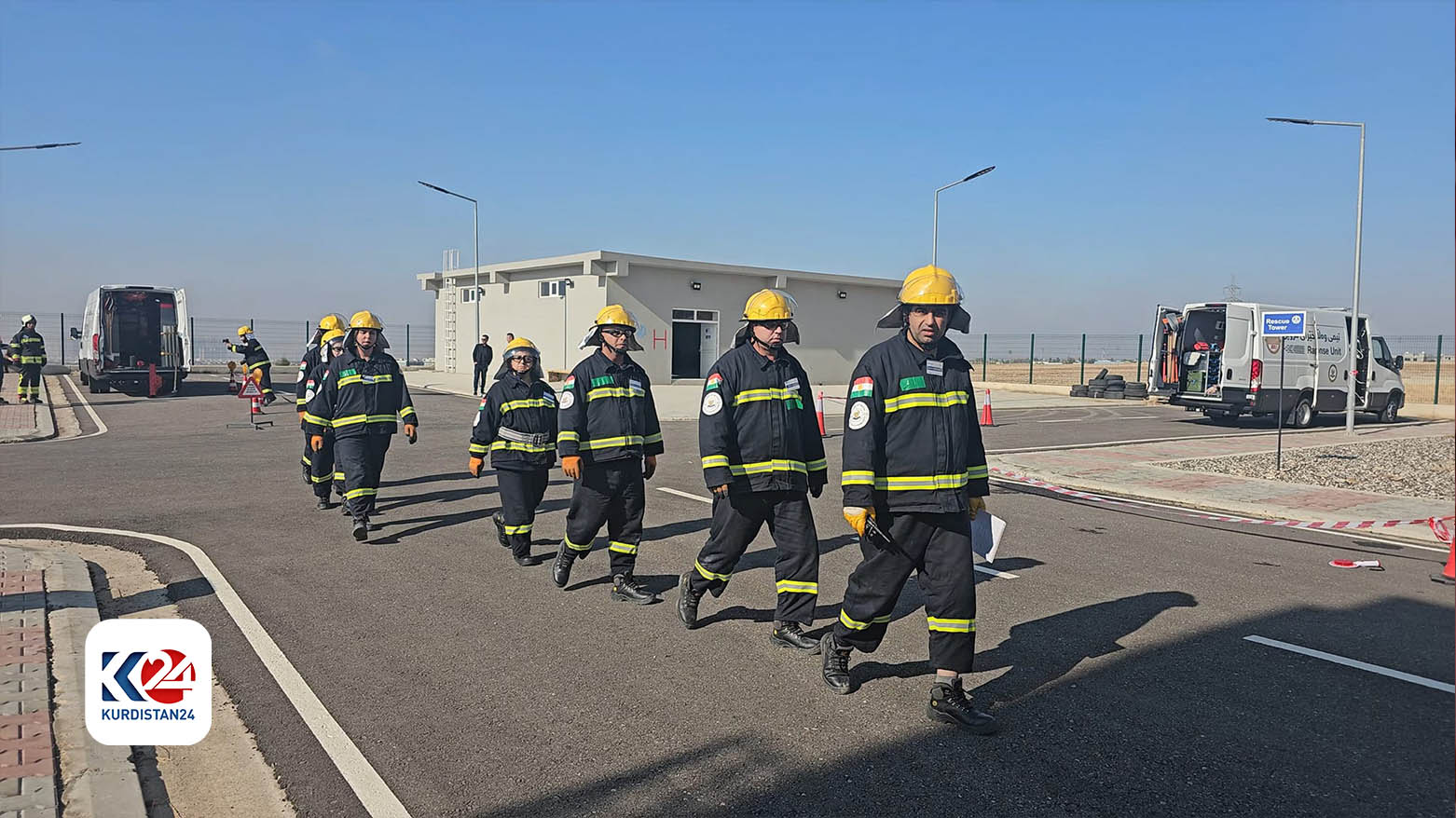KRG Interior Ministry launches second crisis response training with German support in Soran
The Centre announced that seven rapid response teams have been established across all provinces and independent administrations, comprising 171 members (119 men and 52 women).

Nov. 29, 2024
ERBIL (Kurdistan24) – The Joint Crisis Coordination Centre (JCC) of Kurdistan Region’s Interior Ministry, in collaboration with the German Interior Ministry and the German Federal Agency for Technical Relief (THW), has launched its second training course for the Rapid Response Team in Soran Independent Administration.
The training program, which ran from Nov. 24-28, 2024, included 25 members from Soran's Rapid Response Team.
German instructors delivered comprehensive training covering various emergency response techniques, including firefighting, rope work, vehicle extrication, flood barrier construction, and proper use of emergency response vehicle equipment.
The training was conducted in cooperation with trainers from the German Federal Agency for Technical Relief, the Civil Defense Institute, and Erbil Governorate's Humanitarian Rapid Response Team.
The Centre announced that seven rapid response teams have been established across all provinces and independent administrations, comprising 171 members (119 men and 52 women).
Two additional humanitarian rapid response teams are planned for establishment in Kirkuk province and the Raparin Independent Administration in 2025.
The Kurdistan Region has been actively working to enhance its emergency response capabilities through international partnerships.
This German-Kurdish cooperation represents part of a broader initiative to modernize the region's crisis management systems and build local capacity for disaster response.
The inclusion of women in the response teams marks a significant step toward gender equality in emergency services in the region.